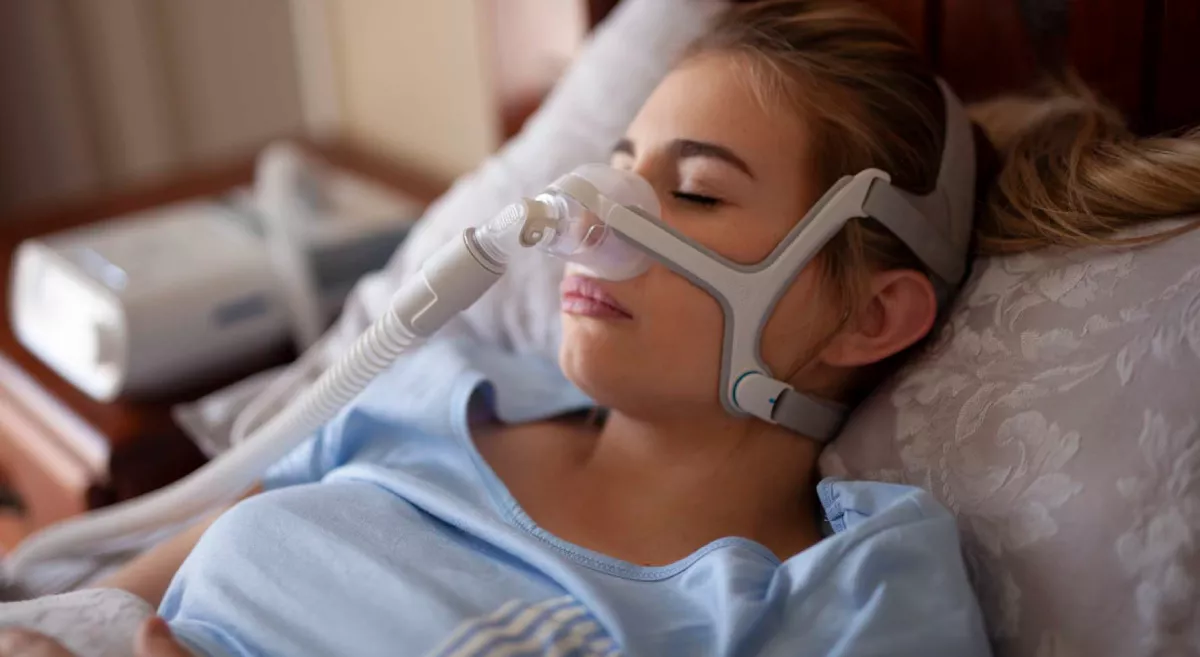A sleep study, also known as a polysomnography, is a diagnostic test used to evaluate a person's sleep and diagnose sleep disorders, including sleep apnea. During a sleep study, a person spends the night at a sleep center or clinic, where their sleep is monitored and recorded by trained sleep technologists.
The sleep study typically involves the following:
Preparation:
Before the sleep study, the person may be asked to avoid caffeine, alcohol, and certain medications that can affect sleep. They may also be asked to bring comfortable sleepwear and any personal items they need for sleep, such as a pillow or book.
Sensors and electrodes:
During the sleep study, the person is connected to a variety of sensors and electrodes placed on the scalp, face, chest, and legs to monitor their brain activity, eye movements, muscle tone, breathing, oxygen levels, heart rate, and other physiological functions.
Sleep monitoring:
The person sleeps as they normally would, while their sleep is monitored and recorded by the sleep technologists. They may be awakened briefly during the night for additional testing or monitoring.
Data analysis:
After the sleep study, the recorded data is analyzed by a sleep specialist, who can diagnose any sleep disorders and develop a treatment plan as needed.
Sleep studies can be conducted in a sleep center or clinic, or in some cases, at home using portable monitoring devices. The type of sleep study recommended will depend on the person's symptoms and medical history. During the sleep study, a person's breathing, oxygen levels, heart rate, and brain activity are measured using a variety of sensors and electrodes placed on the scalp, face, chest, and legs. The study can also detect other sleep disorders or conditions that may be contributing to sleep disturbances.
There are also at-home sleep study options available for diagnosing OSA, where a person wears a portable device that monitors their breathing and oxygen levels while they sleep in their own bed.
If the results of the sleep study suggest that a person has OSA, a healthcare provider may refer them to a specialist, such as a sleep medicine physician or a Pulmonologist for further evaluation and treatment. Treatment options may include lifestyle changes, such as weight loss and avoiding alcohol and smoking, or the use of continuous positive airway pressure (CPAP) therapy, surgery, or oral appliances.
CPAP stands for Continuous Positive Airway Pressure, which is a therapy used to treat sleep apnea, including OSA. A CPAP machine is a medical device that delivers a continuous flow of air pressure through a mask worn over the nose and/or mouth during sleep. The air pressure keeps the airway open, preventing the pauses in breathing that occur with sleep apnea.
CPAP THERAPY-
Talk to a healthcare provider:
If you have been diagnosed with OSA or another sleep disorder, talk to your healthcare provider about whether CPAP therapy is right for you.
Get a CPAP machine:
If your healthcare provider recommends CPAP therapy, they will likely refer you to a durable medical equipment (DME) supplier who can provide you with a CPAP machine and accessories, such as a mask and tubing.
Set up the machine:
Once you have the CPAP machine, you will need to set it up according to the instructions provided by the DME supplier. This typically involves plugging in the machine, attaching the tubing to the mask, and adjusting the settings as directed.
Wear the mask:
Before going to bed, put on the mask and adjust the straps to ensure a secure and comfortable fit. The mask should be snug, but not so tight as to cause discomfort.
Turn on the machine:
Turn on the CPAP machine and adjust the airflow as directed by your healthcare provider. The machine should deliver a continuous flow of air pressure throughout the night.
It may take some time to get used to wearing a CPAP mask and sleeping with the machine. However, with practice and persistence, many people find that CPAP therapy is an effective treatment for sleep apnea and improves their quality of life.





